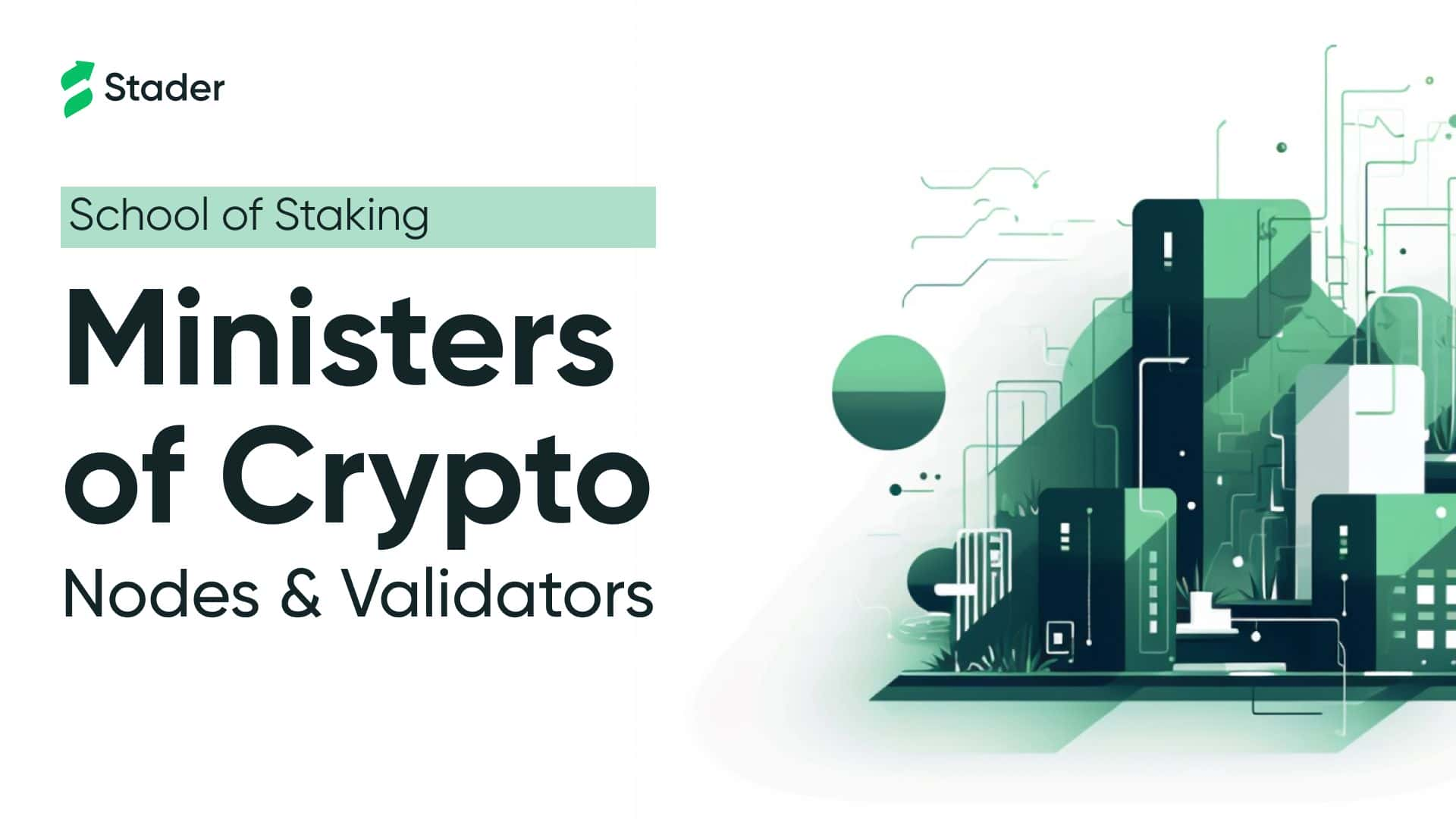Ministers of Crypto
Home
Blogs
BNB
Ministers of Cr...

Ministers of Crypto
Even with all the info available publicly, the majority of the people stay away from the world of staking and crypto. To help you understand the crypto staking ecosystem in a better way, Stader Labs brings you School Of Staking!
Starting from this first session and working towards the last, We'll cover all you need to know in order to make the most out of your staking journey.
And like we said, our goal here is to help you understand first and then participate. So instead of talking about wallets and how to deposit etc. We'll start with something even more important.
The cornerstone of the staking world.
Nodes & validators
You know how in a government there are representatives, whose job is to talk to the people.
They find out what people want, collect relevant information & send it up the chain of command.
In blockchain, these representatives are called Nodes. And the people are users making transactions.
The term "node" has existed well before crypto. And it can be technically defined as a network point where a message can be created, received, or transmitted. When it comes to crypto, these "messages" are replaced by transaction information.
And because blockchains are decentralized in nature, they have multiple nodes supporting the network.
Most commonly, nodes can be of two kinds.
- Light nodes
- Full nodes
Each provides value to the blockchain in a different way. You can think of it as representatives at different levels.
Light nodes use the minimum amount of data possible to interact with the blockchain. Majority of the nodes on a blockchain are light in nature. They are also easier to set up & require low investment to do so.
Moving higher up, we have Full nodes
These store full blockchain data & can participate in the verification of transactions on top of broadcasting them.Before we continue, it's important to to note one thing:
All validators are nodes, but not all nodes are validators.
Validators
Above the people's representatives, come elected ministers.They have the power to make important decisions & decide what's legal or not. Let's see how this translates into crypto terms?
Simply put, these are full nodes that validate new transactions. By doing so, they add new blocks to the blockchain. And for this, they receive a fee/reward
But like government officials, how are they selected?
Like different countries have their own election process, different POS blockchains have their own specifications when it comes to choosing validators.
For eg:
On the BNB chain, there are 29 active validators currently. These are elected on daily, using the following eligibility criteria:
1. Singular stake of at least 10000 BNB
2. Properly configured Virtual Private Server
3. Run a local full node
The top 29 nodes out of the 50 eligible ones are elected as validators in BNB
Apart from verifying transactions, validators have additional roles as well. They make network decisions such as adjusting gas fees and proposals for protocol upgrades.
To sum it up, Nodes & Validators are a critical & essential part of any POS network, keeping it stable & secure for users.
So class, this was our first lesson.
Stay tuned so you don't miss the next session!
By:
Utkarsh Verma
Join Stader’s newsletter
Get the latest updates, new DeFi strategies and exclusive offers right in your email box
Analytics
© Copyright 2023 Stader. All rights reserved.











